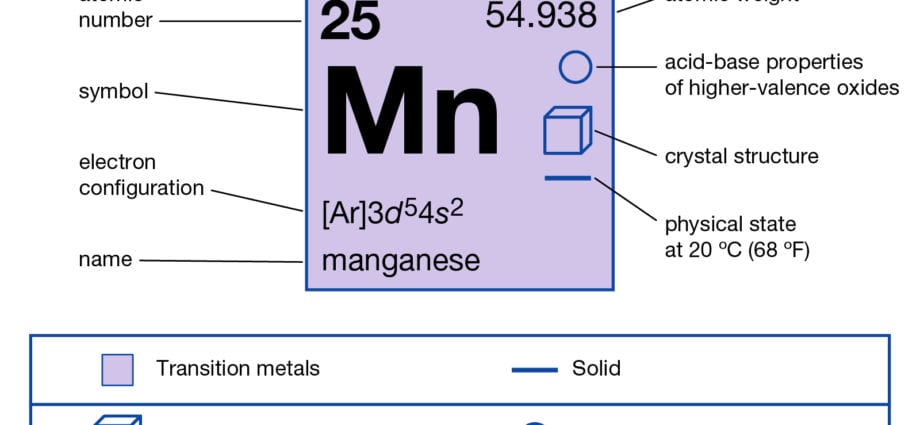Contents
The human body contains 10-30 g of manganese. It is mainly found in the pancreas, liver, kidneys, pituitary gland, and bones.
The need for manganese is 5-10 mg per day.
Manganese rich foods
Indicated approximate availability in 100 g of product
Useful properties of manganese and its effect on the body
Manganese is part of the active center of enzymes involved in redox processes (superoxide dismutase and pyruvate kinase). It is also an integral part of the enzymes involved in the formation of connective tissue, it contributes to the growth and normal condition of cartilage and bones.
Manganese is essential for the normal functioning of the brain and nervous system. It is needed for the work of the pancreas, energy production, synthesis of cholesterol and nucleotides (DNA); affects fat metabolism, preventing excess fat deposition in the liver; normalizes blood sugar, lowering it in diabetes.
Manganese regulates blood glucose levels and is needed for normal insulin synthesis; stimulates the formation of ascorbic acid from glucose. Manganese is an essential component in the formation of thyroxine, the main thyroid hormone. It is necessary for every living cell to divide.
Interaction with other essential elements
With an excess of iron (Fe), the absorption of manganese decreases.
Manganese, together with zinc (Zn) and copper (Cu), functions as an antioxidant.
Lack and excess of manganese
Signs of a manganese deficiency
There were no obvious manifestations of manganese deficiency, however, symptoms such as growth retardation, atrophy of the ovaries and testicles, disorders of the skeletal system (decreased bone strength), anemia may be associated, including with manganese deficiency.
Signs of excess manganese
- loss of appetite;
- drowsiness;
- muscle pain.
With an excess of manganese, “manganese rickets” can develop – changes in the bones are similar to rickets.
Factors affecting manganese content in foods
Up to 90% of manganese is lost from cereals and grains during threshing.
Why Manganese Deficiency Occurs
An excess of carbohydrates in the diet leads to an overexpenditure of manganese.










